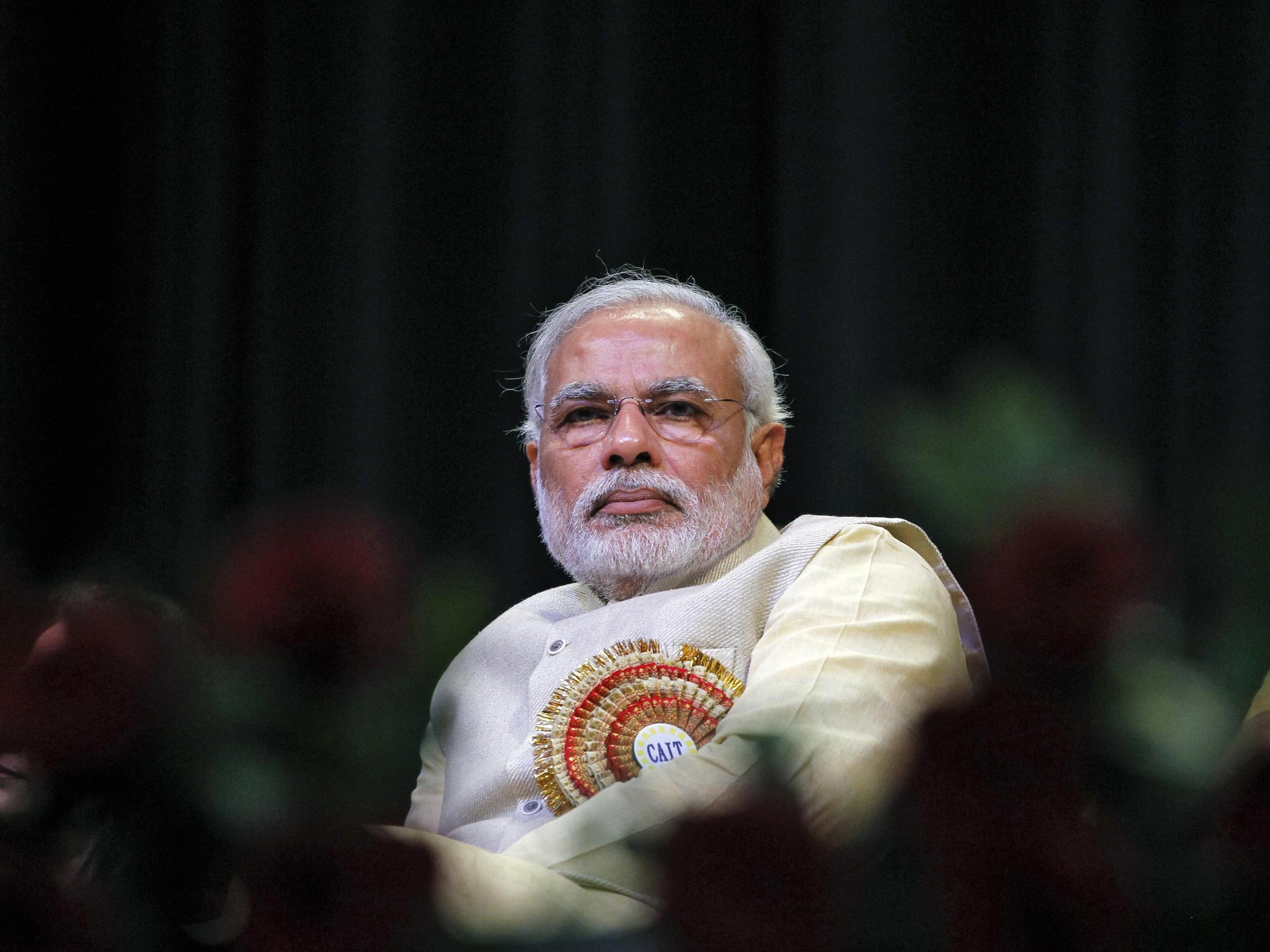If Modi wins the election, India will have crossed a moral Rubicon
The poll may prove historic for all the wrong reasons

Your support helps us to tell the story
From reproductive rights to climate change to Big Tech, The Independent is on the ground when the story is developing. Whether it's investigating the financials of Elon Musk's pro-Trump PAC or producing our latest documentary, 'The A Word', which shines a light on the American women fighting for reproductive rights, we know how important it is to parse out the facts from the messaging.
At such a critical moment in US history, we need reporters on the ground. Your donation allows us to keep sending journalists to speak to both sides of the story.
The Independent is trusted by Americans across the entire political spectrum. And unlike many other quality news outlets, we choose not to lock Americans out of our reporting and analysis with paywalls. We believe quality journalism should be available to everyone, paid for by those who can afford it.
Your support makes all the difference.The world’s media regard it as a postcolonial success story – a functioning democracy that has managed to remain formally pluralist and inclusive – and describe the spectacle of India’s vast electorate going to the polls as “historic”.
Sadly, it may be historic for reasons altogether less inspiring. If, as expected, the right-wing Hindu nationalist Bharatiya Janata Party (BJP) wins the largest number of seats and installs its candidate, Narendra Modi, as prime minister, India will cross a blood-soaked moral Rubicon.
It is a line that many rightly fear represents a point of no return in the relationship between India’s Hindu majority and diverse minority communities, especially Muslims, India’s “major minority”. The line is that between flawed democracy and a steady procession of temple chariots heading towards the ethnically pure fascism openly espoused by most Hindu extremists.
Under Mr Modi’s leadership as chief minister of Gujarat in February 2002, the state witnessed anti-Muslim massacres after the death of several Hindu extremist campaigners in a train fire, the cause of which has still not been established but which Mr Modi immediately pinned on Islamist forces.
Allegations that he was involved in engineering the carnage in which hundreds of Muslims died have yet to be proven, but one of his ministers has been jailed for her role in the violence and, in 2007, police officers and politicians answerable to Mr Modi were caught on tape boasting about killings and rapes.
Although the BJP has been in power before, none of its leaders have been so closely linked with horrific anti-Muslim brutalities on this scale.
Shocking as they were, the Gujarat massacres are not an exception when it comes to the Hindu right’s brand of extremism. Coinciding with India’s embrace of free-market capitalism in the early 1990s, “Hindu cultural assertion”, as its votaries call it, enables many wealthy Indians to hold on to a manufactured sense of identity as, in a welter of smartphones and luxury cars, they assimilate into the facelessness of global hyper-consumerism. In a society where the wealth crevasse is expanding, the disenfranchised, too, find in right-wing nationalism the powerful certainties of bigotry.
Charging everyone from secularists and feminists to gay rights campaigners, academics and environmentalists with being beholden to Western notions, the BJP and the disturbing proto-fascist organisations behind it claim to stand for a distinctively Indian ethos, symbolised, in its manifesto, by a divisive insistence on building a Hindu temple on the ruins of the mosque destroyed by its activists. While calling for a “firm hand” in dealing with insurgency, with Kashmir and with Pakistan, the BJP also touts an unambiguously Western model of capitalist growth, with Mr Modi mythologised as “Vikas Purush” or “Development Man”, under whom Gujarat Inc. tells an entrepreneurial success story.
Even looking past the charred bodies of murdered Muslims, we find that Gujarat’s record in healthcare, gender equality and education is poor – Mr Modi famously blamed malnutrition on dieting – and that “Modinomics” is largely about giving large corporations cheap land deals at the expense of the rural poor, bypassing competition laws, and inflicting environmental degradation.
Tragically, Indians are not spoiled for choice as they seek an alternative to the unpopular coalition keeping the Congress party in power. Long given to dynastic politics and corruption, its candidate for leadership is the patently unsuitable Rahul Gandhi, grandson of Indira.
While formally committed to upholding India’s secular and pluralist constitution, the Congress’s history of crushing political and regional insurgency is not encouraging. Despite rhetoric supporting the poor, it has failed to alleviate deep-rooted problems of exploitation and poverty.
A third force has appeared in the form of the Aam Aadmi Party, campaigning on an anti-corruption and good governance platform. Whether it shapes up as a force to be reckoned with remains to be seen. What can be said with certainty is that a Modi win will be the beginning of the end of the idea envisaged by those who wrote India’s constitution – a truly independent, proudly plural nation.
Priyamvada Gopal teaches in the Faculty of English at the University of Cambridge
Join our commenting forum
Join thought-provoking conversations, follow other Independent readers and see their replies
Comments